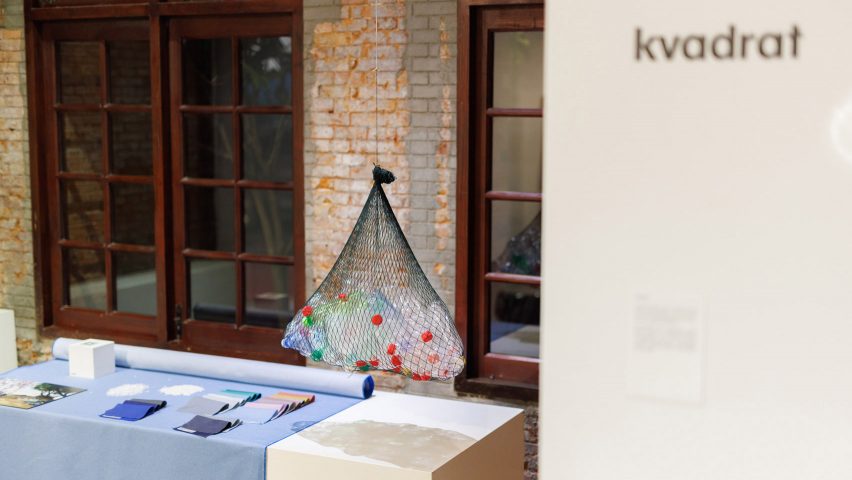
Sustainability "not making our lives easier" says Kvadrat CEO
Kvadrat CEO Anders Byriel discusses why the Danish textile producer is deliberately tackling sustainability "the hard way" in this exclusive interview.
The company sees itself as having a history of corporate responsibility – but Byriel said he was taken aback after it signed up to the Science-Based Targets Initiative (SBTI) on reducing emissions in 2019.
"When we measured our footprint I [was] surprised – I thought we were close to net-zero," he told Dezeen.
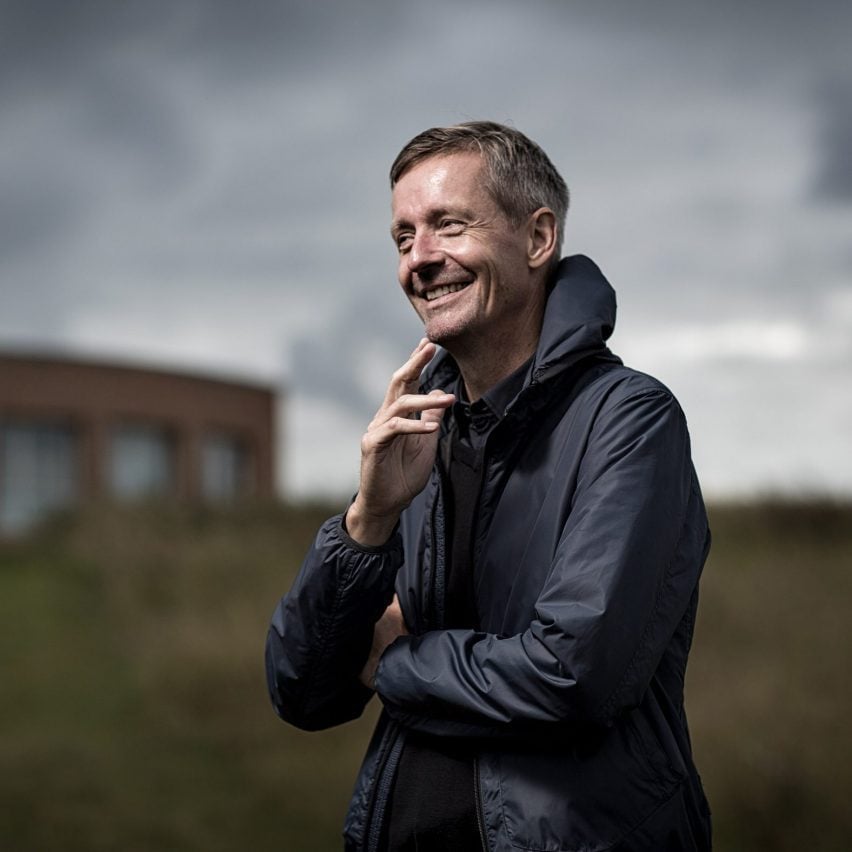
Far from being net-zero, the brand found it was actually emitting 2,364 tonnes of carbon dioxide per year from direct company operations.
And that was just the tip of the iceberg. A staggering 98 per cent of Kvadrat's emissions occur in its supply chain – known as scope three emissions – outside of its direct control.
One major contributor to the company's direct (scope one and two) emissions is the company fleet of vehicles. Kvadrat therefore has decided to replace all fossil-fuel based and even hybrid company cars in Denmark to an all-electric fleet in 2024.
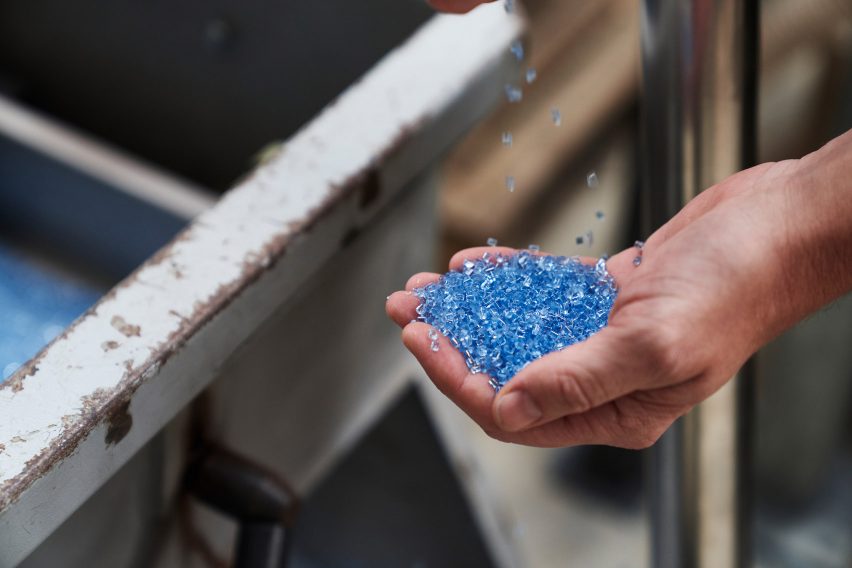
It is also considering adopting the same standard in countries with well-established electric-vehicle infrastructure as it seeks to halve its direct emissions by 2026.
Meanwhile, the company's biggest sustainability challenge is persuading its suppliers to follow suit.
Crucially, the SBTI does not allow for carbon offsetting, so emissions targets must be achieved principally through direct reduction.
"It's the hard way," said Byriel. "But we want to be the undisputed leader in sustainability."
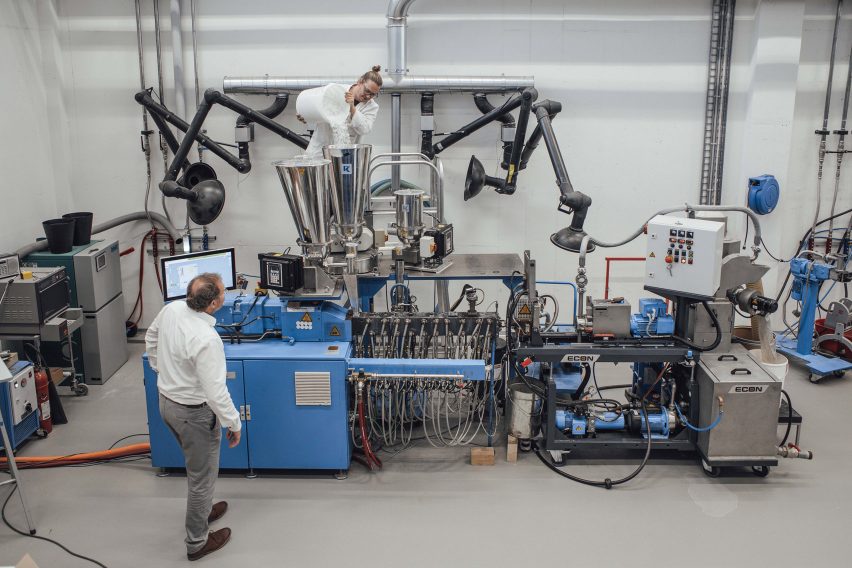
"If you don't measure your footprint scientifically, how can you measure your goal anyway?" he added.
Kvadrat has also recently committed to the Environmental Product Declaration (EPD), a global standard that seeks to measure and reduce the environmental impact of products and services transparently.
"As a company with a history of using clean and responsible materials and manufacturing, following these new standards, is still eye-opening for me," said Byriel.
"It comes with pains but we all need to transform"
He took wool as an example of the surprising things to emerge from Kvadrat's deep dive into its environmental footprint.
"Wool is a wonder material that we are very close to – it lasts three times longer than a man-made material, it's grown in nature," he said.
"But if you calculate the footprint of the textile against that of recycled polyester, it does not perform that well due to the footprint generated by transport and the sheep."
"So we have to adapt one-third of our wool production using hydropower to reduce the overall footprint of wool, so that it can compete with recycled polyester."
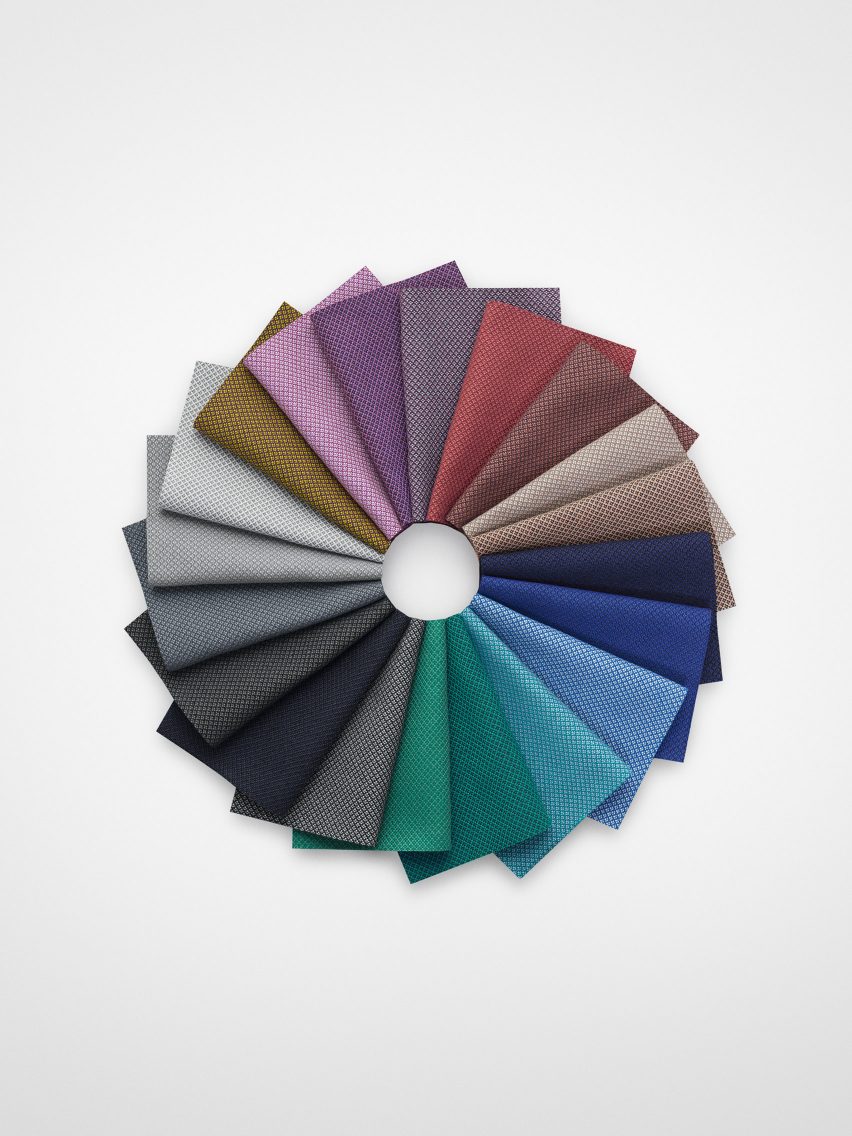
Taking sustainability seriously comes with challenges, Byriel acknowledged.
"It's not making our lives easier because it makes our product more expensive," he said. "It comes with pains but we all need to transform."
However, the company hopes that by getting ahead of the curve it will be left in a stronger position if and when governments start regulating to reduce the industry's environmental impact.
"Due to all these things that we have done for many years, when the regulation eventually catches up we would already be compliant with that – we don't have to do anything to change," said Byriel.
Kvadrat has committed to spending 80 per cent of its investment over the next five years on sustainability-related projects, including material innovations and developing machines to aid re- and up-cycling.
As part of that work, it is on a mission to replace all man-made plastic in its products with recycled plastic.
In October, it launched a new textile developed in collaboration with 2023 Dezeen Awards winner Patricia Urquiola that it claims is the world's first recycled polyester upholstery textile made from 100 percent ocean-bound plastic waste.
Named Sport, the new textile was created through four years of research together with Tide, a Switzerland-based company that specialises in building a global supply chain for premium second-life materials made from ocean-bound plastic waste.
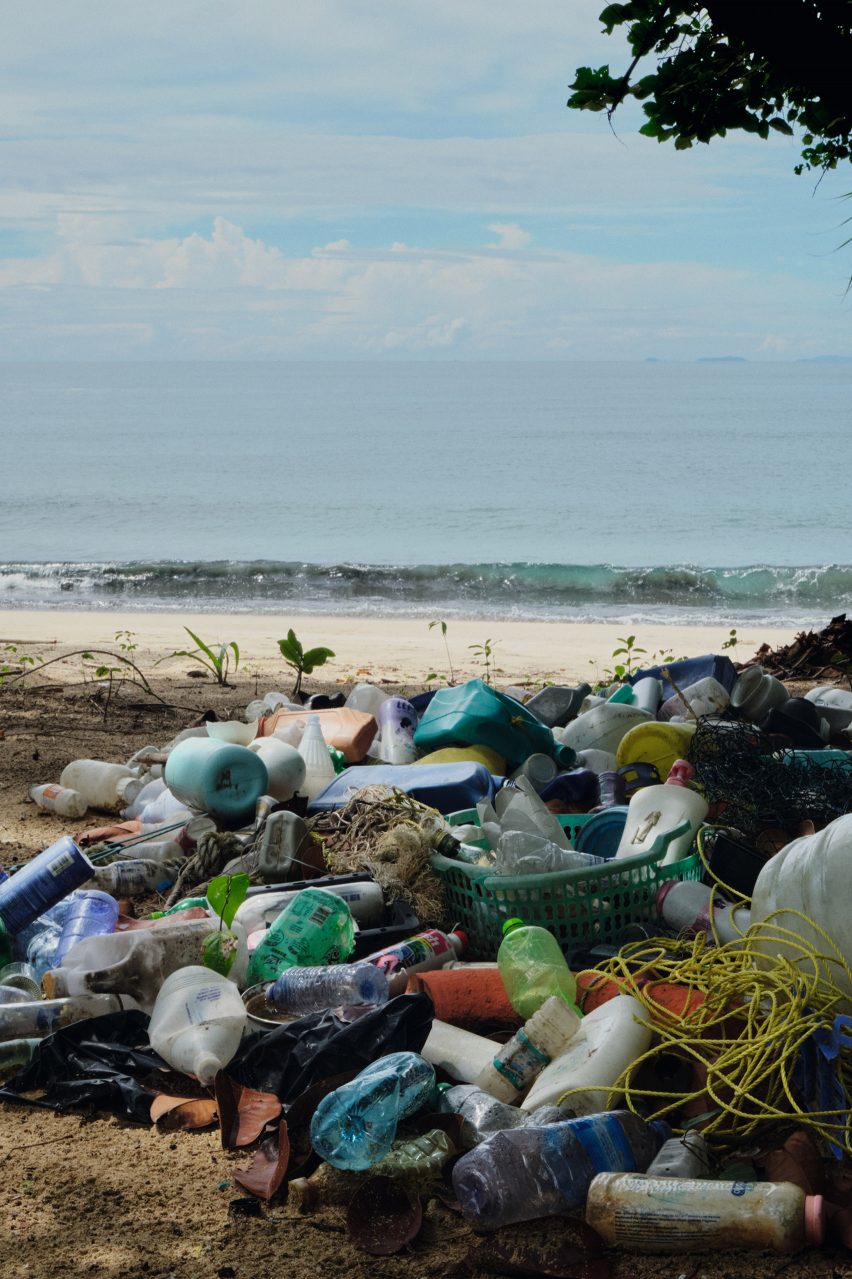
"It's made out of 100 per cent ocean plastic, which is a big achievement, as the ocean-plastic-made textiles out there usually only contain 10 to 15 percent ocean plastic," Byriel said.
Speaking to Dezeen during Design Republic's Festival of Design in Shanghai, where Sport was on display in an exhibition, Byriel claimed that ocean-plastic polyester textiles often incorporate plastic collected up to 50 kilometres from the coastline.
As a result, the plastic has already started to disintegrate so the textiles typically have to integrate either virgin polyester or polyester recycled from other post-consumer plastic sources.
Biomaterial textiles and recycling factory
The plastic used to manufacture Sport, on the other hand, is mostly collected less than 10 kilometres away from the coastline of remote islands in Thailand.
"We collect good-quality plastic to make yarn from," explained Byriel.
"The dissolving process only comes with the mechanical movement of the waves and the exposure of the sun, so once it's been taken out of the ocean and made into textile, it's safe to use just like every other plastic product we live with everyday."
Kvadrat is also working on bio-based materials, including a leather alternative made out of hemp and food-waste polyesters, with the first product due for release in two years' time.
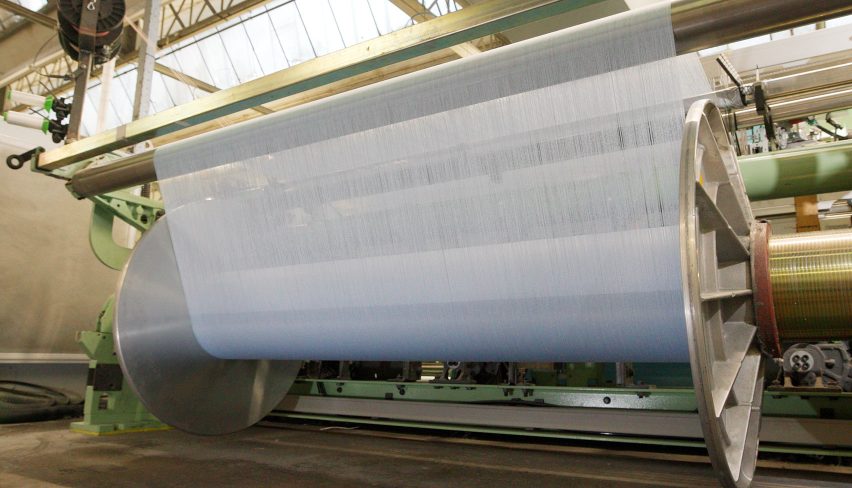
Meanwhile, it has set up a 20,000 square-metre factory to take back waste materials from clients and turn them into new products.
"This is the result of a six-year technology development," said Byriel.
"For example, we can take back old uniforms and press them with our machines to make a tabletop," he continued.
"When the tabletop is at the end of its lifecycle, we can take it back again and create something new – this is an endless loop."
The images are courtesy of Kvadrat unless stated otherwise.
Dezeen In Depth
If you enjoy reading Dezeen's interviews, opinions and features, subscribe to Dezeen In Depth. Sent on the last Friday of each month, this newsletter provides a single place to read about the design and architecture stories behind the headlines.